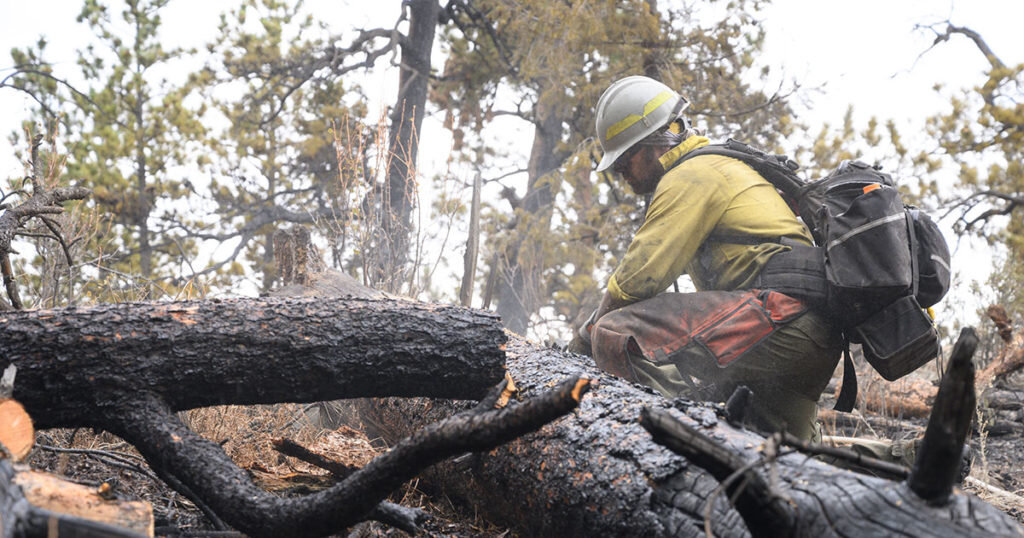With a busy fire season already upon us, researchers at Colorado State University (CSU) looked into the potential for a massive outbreak of COVID-19 at a large fire camp. A large fire camp has a high potential for disaster among the transient, high-density workforce which comprises these camps. The team from CSU “developed an epidemiological modeling exercise for the USDA Forest Service and other fire managers that demonstrates potential risks and various scenarios COVID-19 could pose for the fire management community.” Full Article from CSU’s Anne Manning here.
Abstract: The global COVID-19 pandemic will pose unique challenges to the management of wildland fire in 2020. Fire camps may provide an ideal setting for the transmission of SARS-CoV-2, the virus that causes COVID-19. However, intervention strategies can help minimize disease spread and reduce the risk to the firefighting community. We developed a COVID-19 epidemic model to highlight the risks posed by the disease during wildland fire incidents. Our model accounts for the transient nature of the population on a wildland fire incident, which poses unique risks to the management of communicable diseases in fire camps. We used the model to assess the impact of two types of interventions: the screening of a firefighter arriving on an incident, and social distancing measures. Our results suggest that both interventions are important to mitigate the risks posed by the SARS-CoV-2 virus. However, screening is relatively more effective on short incidents, whereas social distancing is relatively more effective during extended campaigns. We conclude with a discussion of model limitations and potential extensions to the model.
Thompson, M. P., Bayham, J., and Belval, E. Potential COVID-19 Outbreak in Fire Camp: Modeling Scenarios and Interventions. Fire 2020, 3(3), 38; https://doi.org/10.3390/fire3030038
Photo by Bill Cotton, Colorado State University Photography

